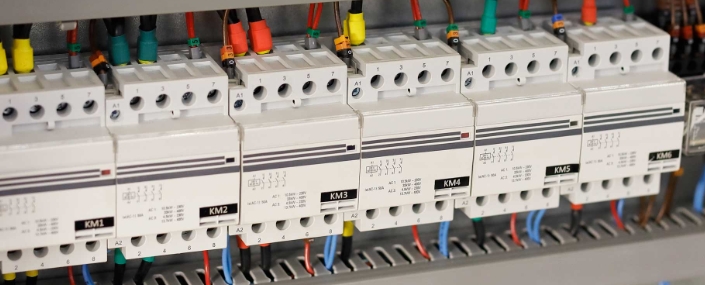
Unveiling the Mystery: Are Relays AC or DC?
February 29, 2024Relays are essential components in electrical systems, serving as switches that control the flow of current. They play a crucial role in various industries, from automotive and telecommunications to industrial automation and power distribution. One common question that arises is whether relays are designed for AC (alternating current) or DC (direct current) applications. In this blog post, we will delve into the intricacies of relays and shed light on their compatibility with AC and DC systems.
Understanding the Basics:
To comprehend the compatibility of relays with AC and DC, it is vital to grasp the fundamental principles behind their operation. Relays consist of an electromagnet, a movable armature, and a set of contacts. When a current passes through the coil of the electromagnet, it generates a magnetic field that attracts the armature, causing the contacts to close or open, depending on the relay type.
AC Relays:
AC relays are specifically designed to handle alternating current. They are engineered to withstand the rapid changes in direction and magnitude of AC voltage. AC relays employ a shading coil or shading ring to prevent the armature from vibrating excessively due to the alternating magnetic field. This design feature ensures reliable switching and minimizes contact wear, enhancing the relay’s lifespan.
DC Relays:
On the other hand, DC relays are optimized for direct current applications. Unlike AC relays, they do not require shading coils or rings since the current flow remains constant in one direction. DC relays are typically more straightforward in design, with fewer moving parts, making them more compact and cost-effective. However, it is crucial to select a DC relay with the appropriate voltage and current ratings to ensure optimal performance and longevity.
Compatibility Considerations:
When choosing a relay for a specific application, it is essential to consider the compatibility between the relay type and the electrical system. While AC relays can generally handle DC currents, they may experience issues such as increased contact wear and reduced switching efficiency. Conversely, using DC relays in AC systems can lead to problems like excessive buzzing, reduced contact life, and potential damage to the relay coil due to the alternating magnetic field.
Selecting the Right Relay:
To ensure optimal performance and reliability, it is crucial to select the right relay for the intended application. Consider factors such as the voltage and current requirements, load type (inductive or resistive), switching frequency, and environmental conditions. Consulting with a knowledgeable engineer or referring to manufacturer specifications can help in making an informed decision.
Conclusion:
In conclusion, relays can be designed for both AC and DC applications, but they are optimized for specific current types. AC relays are tailored to handle the rapid changes in AC voltage, while DC relays are designed for steady DC current flow. Understanding the compatibility between relays and electrical systems is crucial for selecting the right relay and ensuring reliable and efficient operation. By considering the factors mentioned above, engineers and technicians can make informed decisions when integrating relays into their systems, ultimately contributing to enhanced performance and longevity.